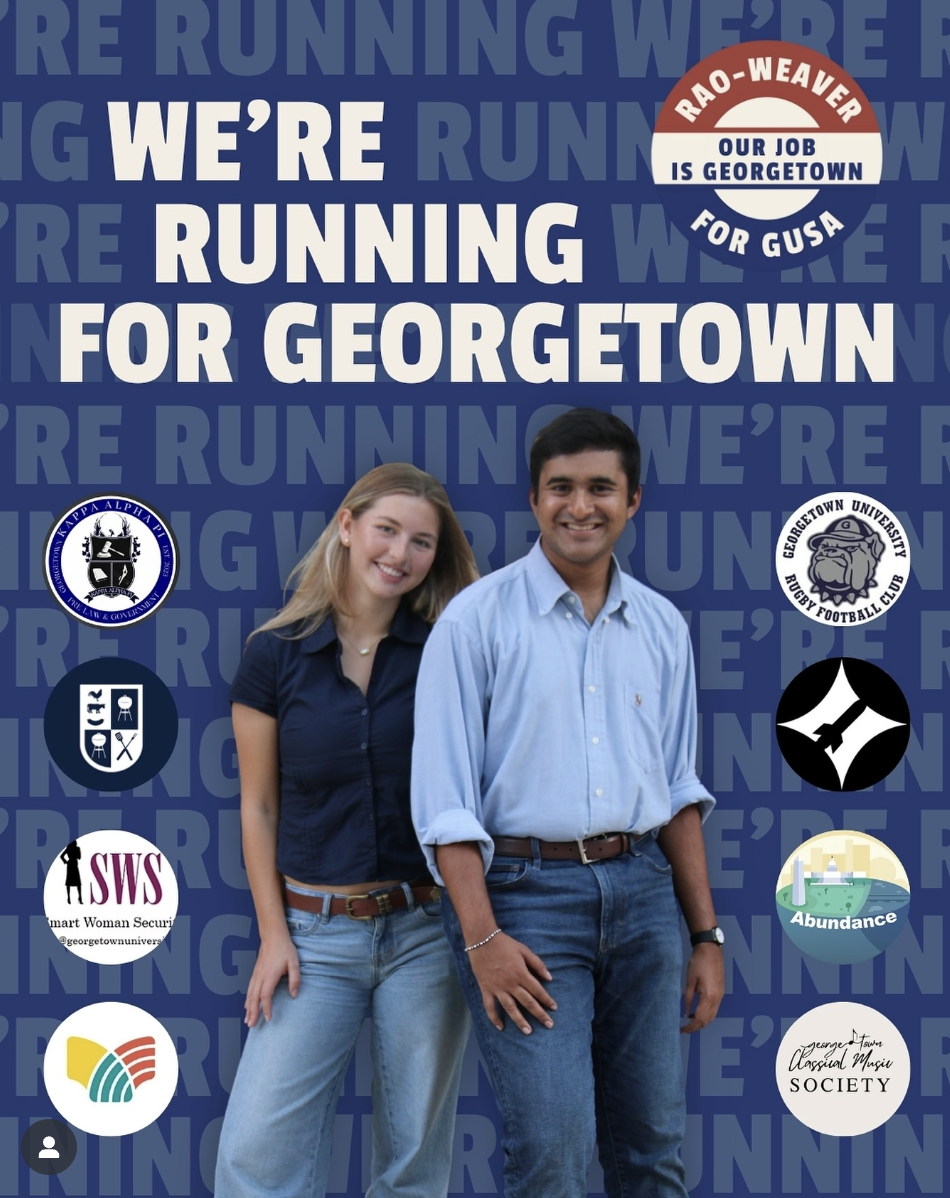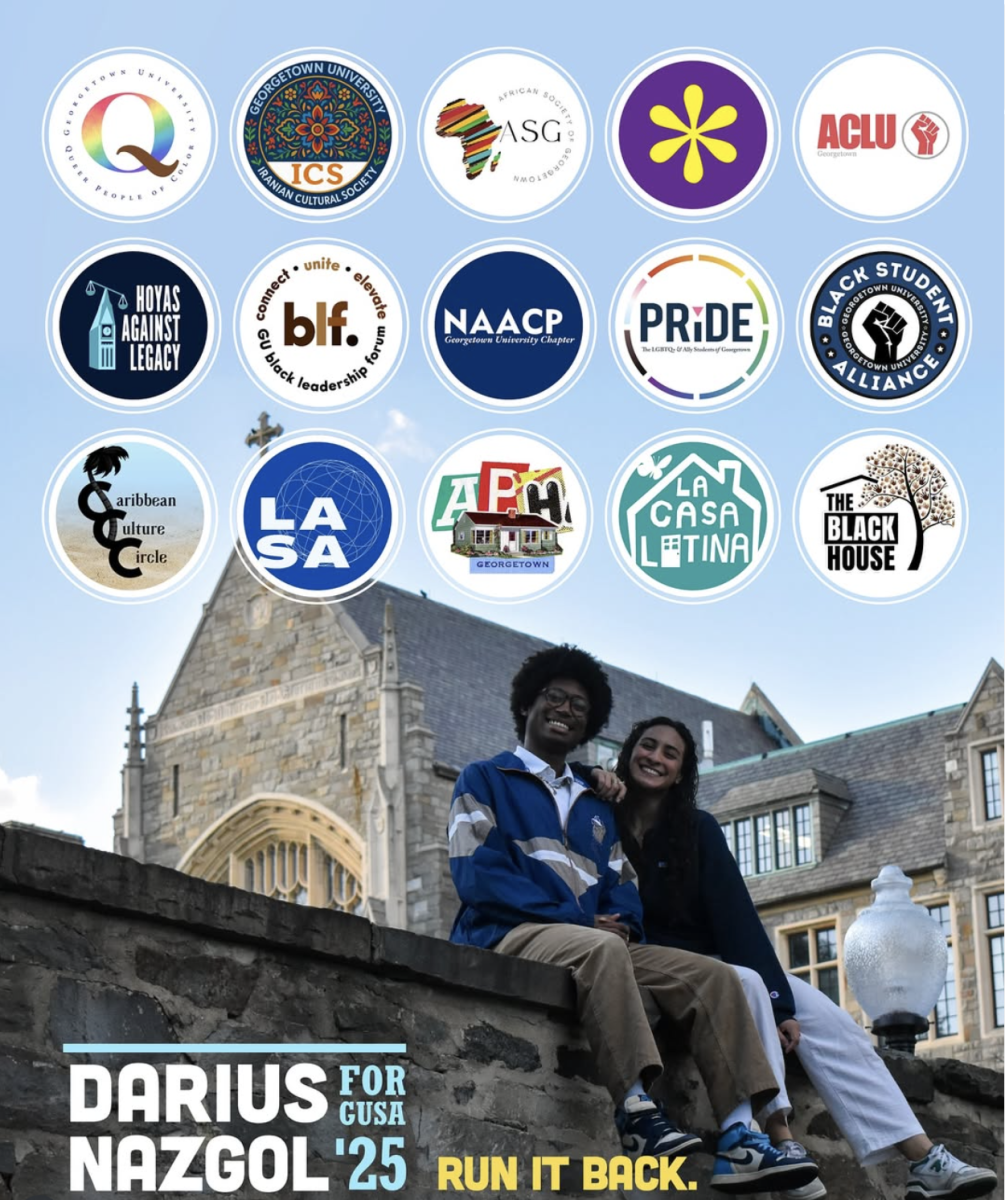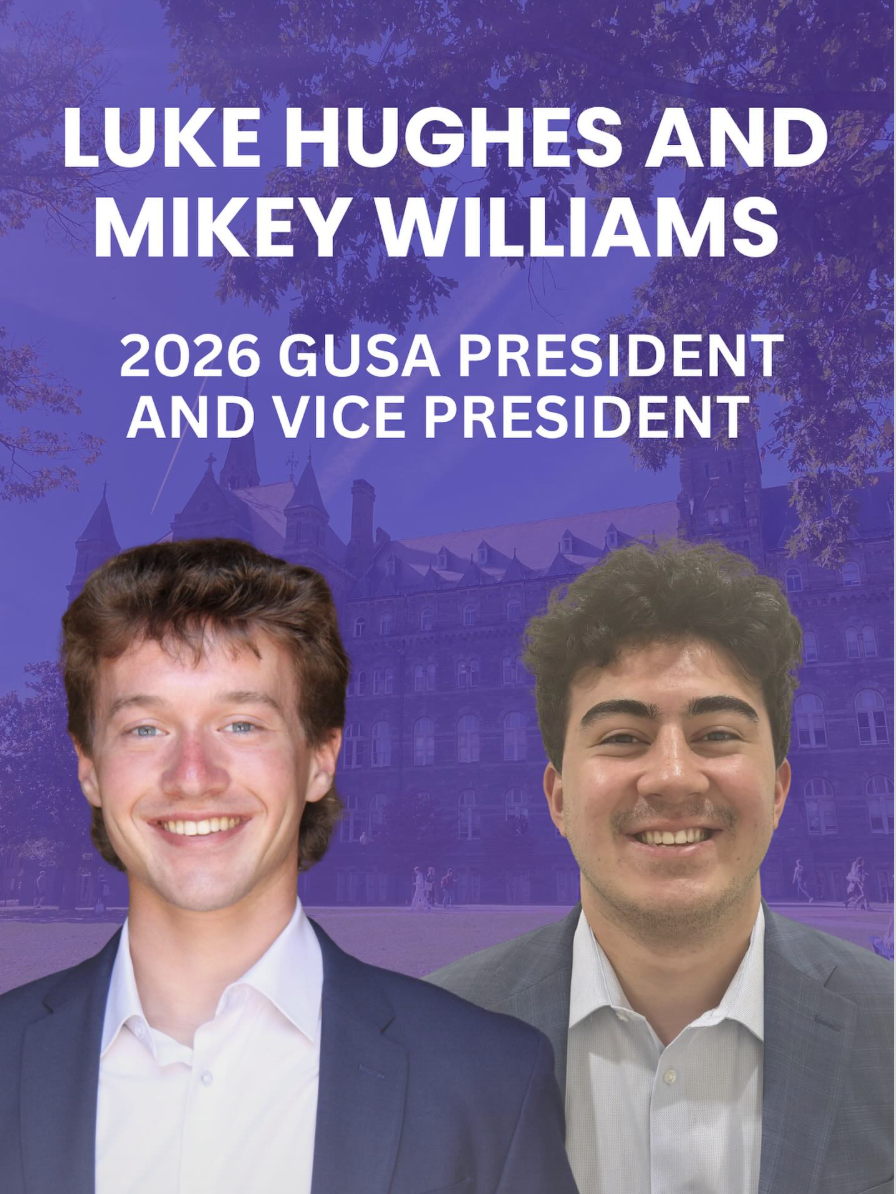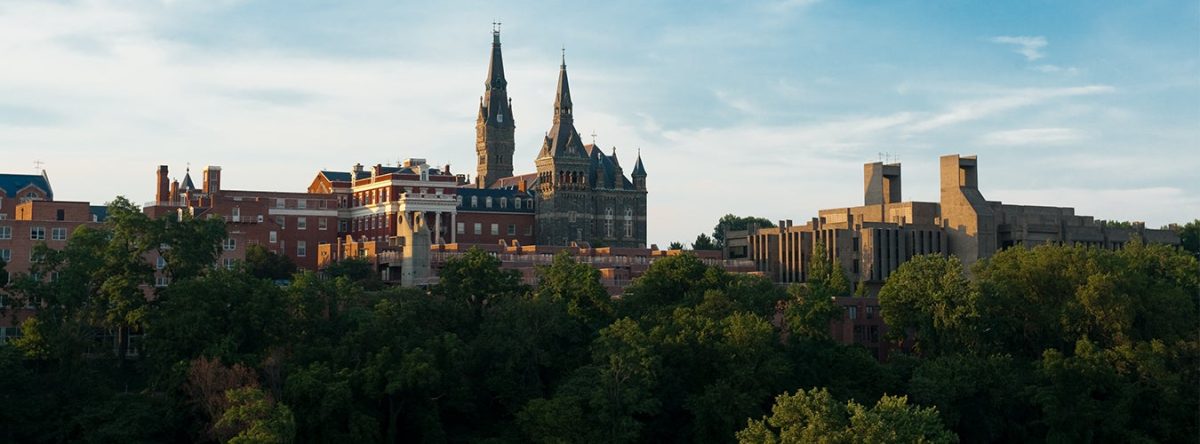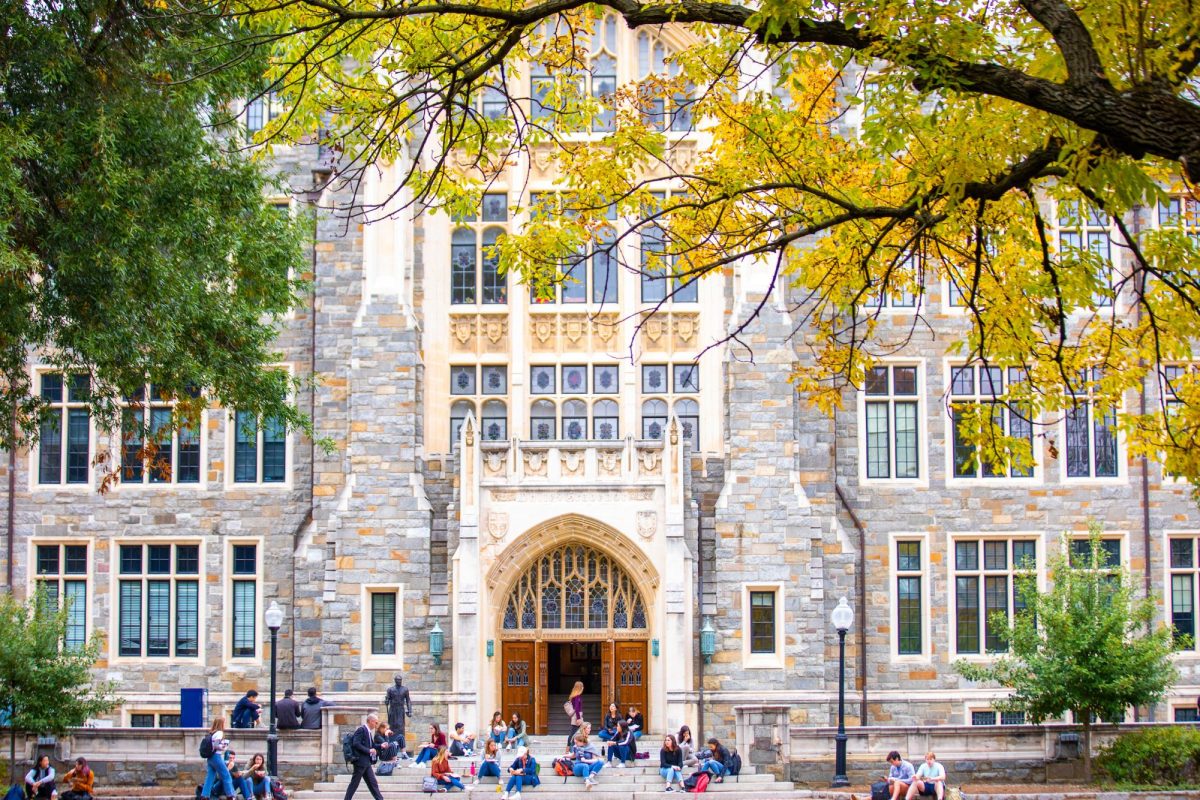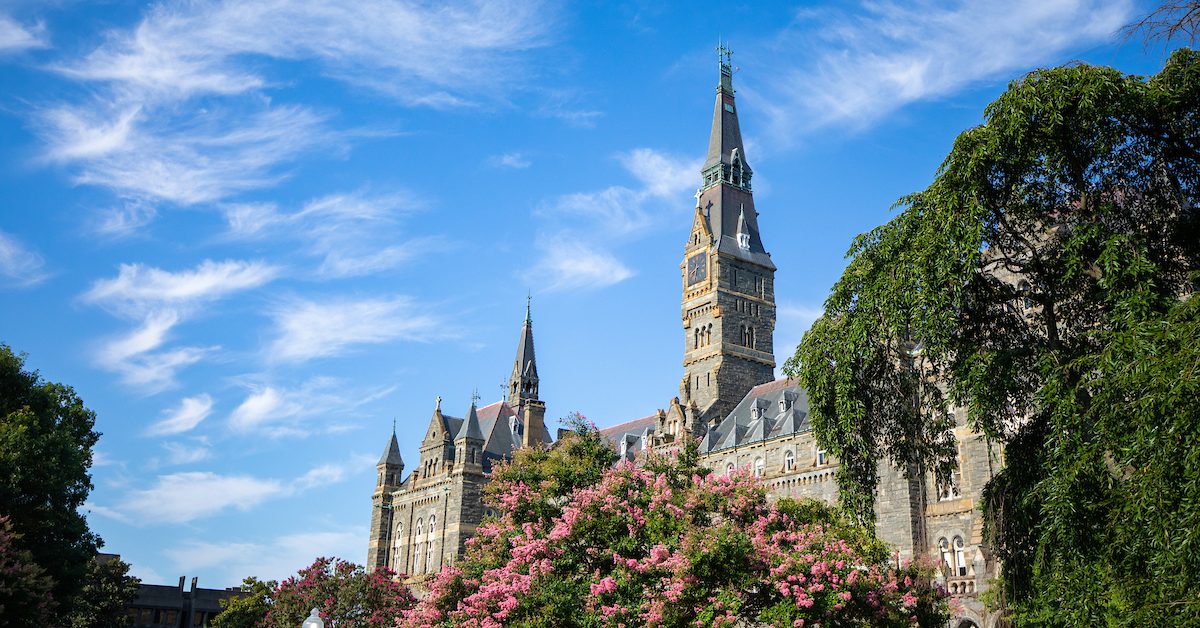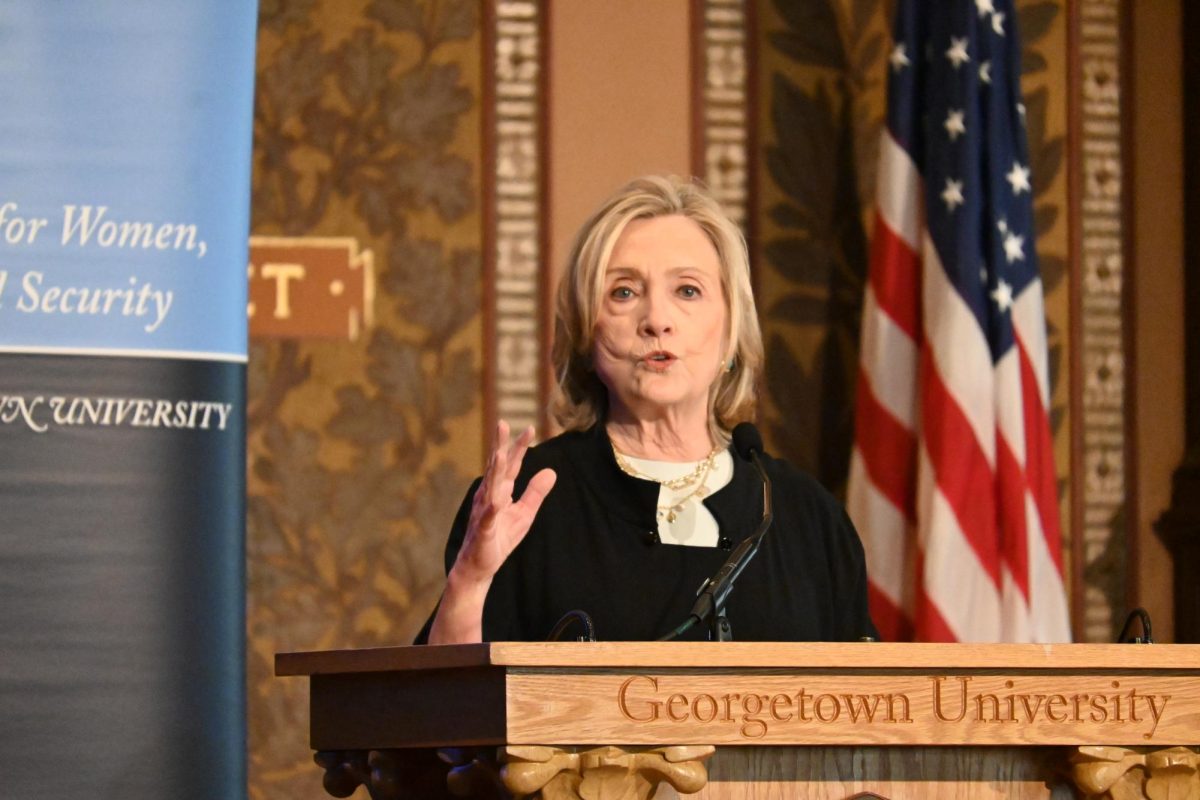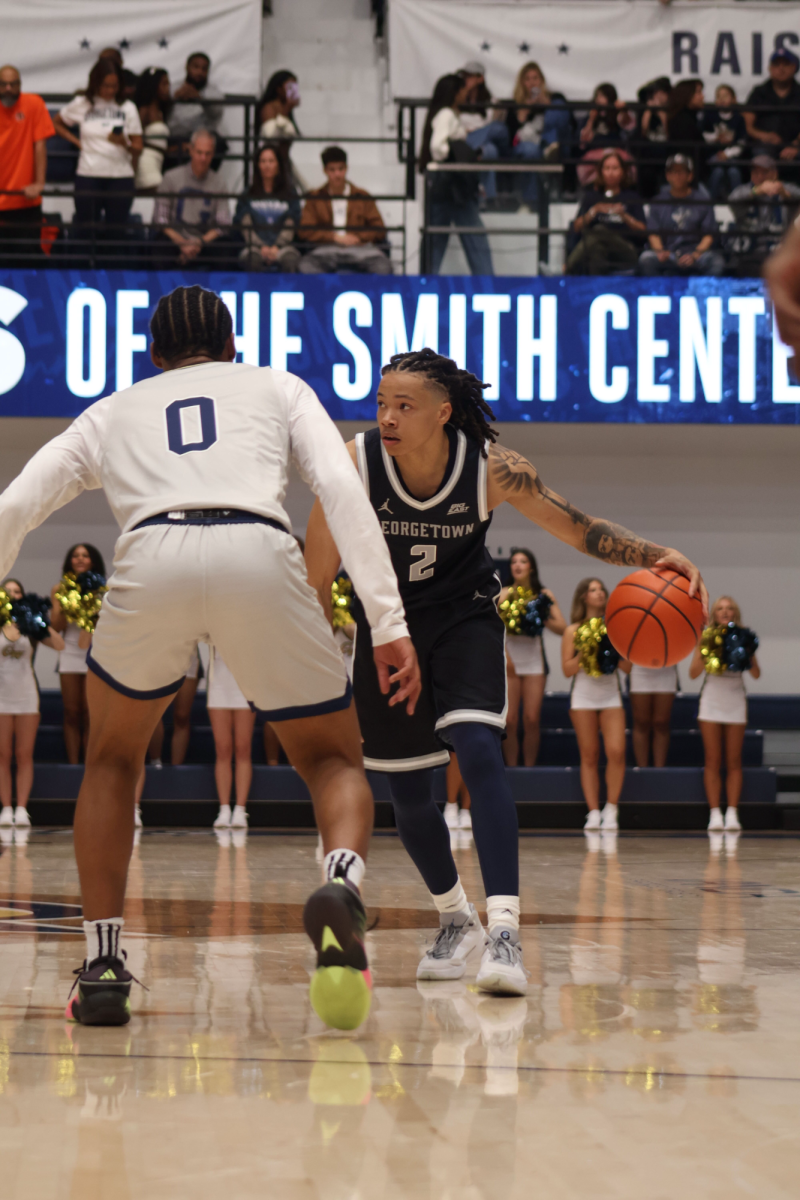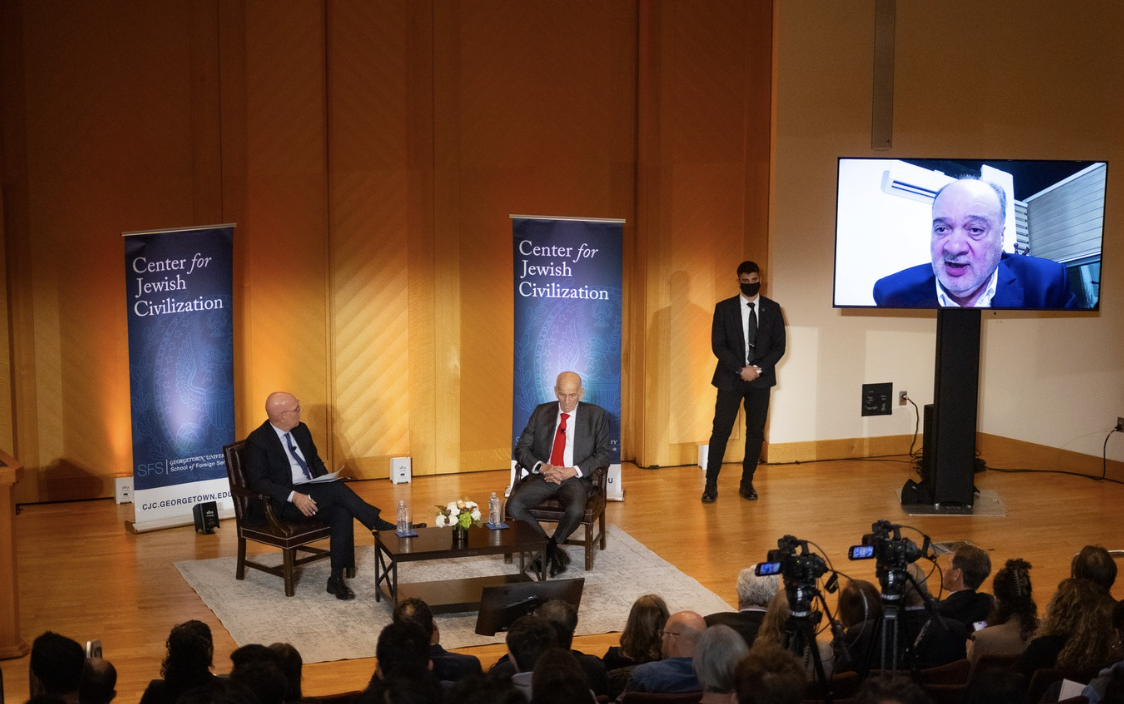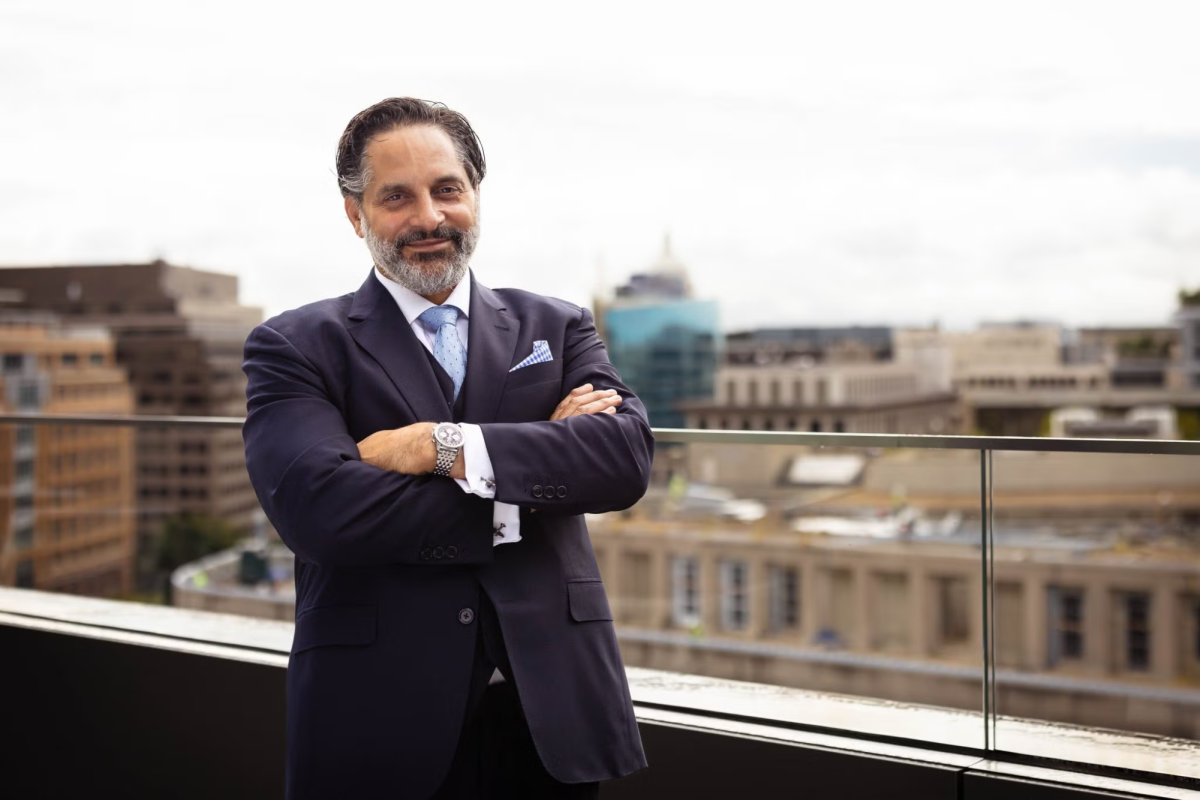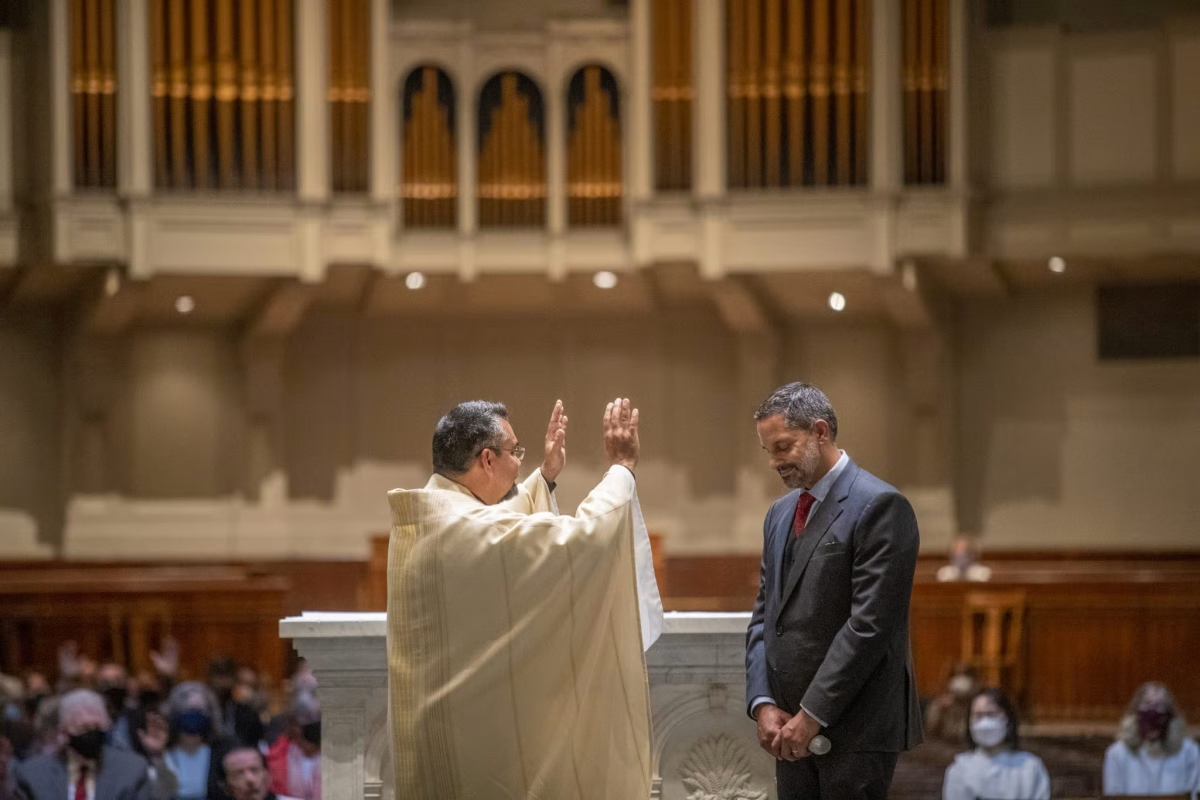The Georgetown University Student Association (GUSA) Senate unanimously approved resolutions to hold two student referendums — one to clarify amplified noise policies by increasing student input and one prioritizing the arts in future campus development plans — at an Oct. 17 special session.
The referendums will appear on students’ ballots between Oct. 22 and Oct. 26 alongside the GUSA executive and senate elections. Referendums allow the student body to vote on specific issues and suggest actions to the university’s board of directors, a governing body that oversees the university’s operations, though the university board of directors is not required to take any action if a referendum is passed.

To be certified, GUSA referendums require a voter turnout exceeding 25% of the student body, while a simple majority of votes in favor is required to pass referendums in the senate.
Senator James Beit (MSB ʼ26), who introduced the student conduct referendum alongside Senator Tina Solki (SFS ʼ26), said he worked with the Student Advocacy Office (SAO), a group of undergraduate students who support students in disciplinary processes, and Izzy Wagener (SFS ʼ26), the chairperson of the Georgetown Resident Assistant Coalition, the union that represents Georgetown’s residential assistants (RAs).
“We have gone through with all the relevant clubs,” Beit said at the meeting. “We went to SAO. I talked a lot with Izzy Wagener in the RA union. Basically everyone agrees that the stuff in the referendum is worth doing, that admin will have a reasonable response to it and that we aren’t doing anything too outrageous.”
The student conduct referendum will ask students if they support making amendments to Georgetown’s disciplinary policies, specifically removing sanctions for noise violations from students’ records at the end of the academic year, creating a Student Conduct Advisory Board to review changes to the code of student conduct and negotiating amplified sound restrictions to allow student concerts and gatherings.
Beit said the referendum asks the university to work with the Georgetown Advisory Neighborhood Commission (ANC), a local government body that deals with neighborhood issues, to revise noise restrictions in Red Square and other campus spaces.
“Right now, the university sort of applies a very blanket, no enhanced noise in Red Square at any time,” Beit said. “And so we want the university to go to both the ANC, the advisory neighborhood committee, and say, ‘What’s acceptable, what do you guys want?’ But also to renegotiate the restrictions on campus.”
Beit added that the student conduct referendum seeks clarity on what noise is permitted.
“The keywords are narrowly tailored to safety and neighborhood concerns,” Beit said. “What level of noise is acceptable? What isn’t? That’s the entire theme of this referendum, of saying what the law is and making it as transparent as possible.”
The second referendum, introduced by Solki, asks the university to make a public commitment to developing at least one space dedicated to artistic use in future university development plans.
Solki, who was unable to attend the meeting, said in a prepared statement read by another senator that the arts referendum was developed with input from student arts organizations.
“This referendum was distributed among media, dance, theater and other fine and performing arts organizations on campus and has been informed by the subsequent conversations with and comments from Hoyas engaged with these programs who have offered overwhelmingly positive feedback,” Solki wrote in the statement.
Solki added that the arts referendum calls for a direct response from the university.
“I want to make it clear that this referendum is demanding an explicit response from the university in the form of a statement and material commitment to the policies described in section one,” Solki wrote.
The organizations that have backed the arts referendum are the Performing Arts Advisory Council (PAAC), the Blaxa Media Group, GU Jawani, WGTB Georgetown Radio, GU Guzaarish, Mask and Bauble Dramatic Society, GU Ballroom Dance Team and Nomadic Theatre.
Solki said PAAC, an organization that works with arts groups, helped develop the referendum.
“This includes PAAC, the Performing Arts Advisory Council that oversees and administers funding to the lion’s share of dance, theater and other performing arts groups on campus,” Solki said.
GUSA Vice President Darius Wagner (CAS ʼ27) said GUSA’s executive leadership and the speaker of the senate, Saahil Rao (SFS ’27), support the referendums and encouraged senators to vote in favor of them.
“On these referenda, I think Saahil and I can both agree this is great for the student body to reduce the increase in citation frequency we’ve been seeing,” Wagner said at the meeting. “And so I would encourage everyone in the vote to vote yes on these referendums. As we all know, this is a pressing issue.”


